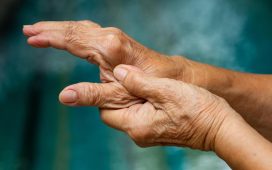Improvement in academic, health, and behavioral outcomes in most intervention groups
WEDNESDAY, April 18, 2018 (HealthDay News) — A range of interventions can successfully improve self-regulation in children and adolescents, according to research published online April 16 in JAMA Pediatrics.
Anuja Pandey, M.D., from the University College London Great Ormond Street Institute of Child Health, and colleagues conducted a systematic review and meta-analysis of rigorously evaluated interventions to improve self-regulation in children and adolescents. The final review included data from 49 studies reporting 50 interventions.
Seventeen cluster randomized trials and 32 randomized clinical trials evaluating self-regulation interventions, with 23,098 participants (ages 2 to 17 years) were identified. The researchers found that in 16 of 21 curriculum-based interventions, four of eight mindfulness and yoga interventions, five of nine family-based programs, four of six exercise-based programs, and four of six social and personal skills interventions (total of 33 out of 50 interventions [66 percent]), there was consistent improvement in self-regulation. In meta-analysis, there was a positive effect of the interventions, with a pooled effect size of 0.42. Twenty-four studies reported data on distal outcomes. Positive associations were reported in 11 of 13 studies on academic achievement; four of five studies on substance abuse; and all studies reporting on conduct disorders, social skills, depression, behavioral problems, and school suspensions.
“There was improvement in distal academic, health, and behavioral outcomes in most intervention groups compared with controls,” the authors write.
Editorial (subscription or payment may be required)
Copyright © 2018 HealthDay. All rights reserved.








